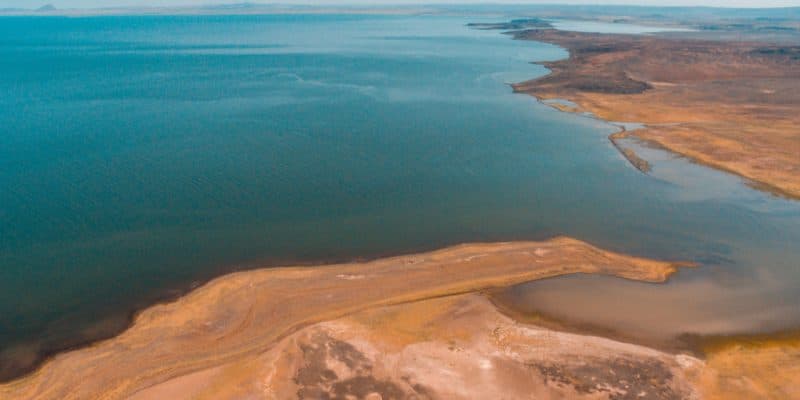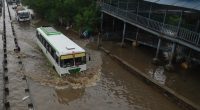In a recent statement, Kenya's Minister of Water, Sanitation and Irrigation, Sicily Kariuki, announced the abandonment of the Lotikipi aquifer desalination project in Turkana County. The decision was based on a lack of funding.
The populations of Turkana County, already on the verge of collapse due to drought, saw a solution with the desalination of water from the Lotikipi aquifer. A project that will finally not come to fruition. In October 2019, the Kenyan government was nevertheless in talks with the Spanish company Almar Water for the construction of a desalination plant in the village of Nanam.
The emissary of this sad news is the Kenyan Minister of Water, Sanitation and Irrigation, Sicily Kariuki. In a recent statement, the authority justifies the decision on the basis of the high cost of desalination, averaging 50 million Kenyan shillings (more than $440,000) per month in electricity bills alone. Construction of the plant itself was expected to cost between 5 and 10 billion Kenyan shillings ($44 million to $88 million).
Secure water supply at risk
With the desalination project halted, Turkana remains on alert along with seven other counties in Kenya, according to the National Drought Management Authority. Through this project, the Kenyan government wanted to boost the development of agriculture and livestock in Turkana. The Lotikipi aquifer, one of the largest on the African continent, contains 200 billion m3 of water over an area of more than 4,100 km2, 300 m below ground level.
The aquifer was discovered in 2013 by the French company Radar Technologies International, as part of a Kenyan government project in partnership with the United Nations Educational, Scientific and Cultural Organization (UNESCO) and funded by the Japanese government.
The use of water from the Lotikipi aquifer is impossible. Drilling around Lake Turkana pumps salty and fluoridated water, which is unsuitable for livestock, agriculture and human consumption. For agriculture, the UN stresses that soils irrigated with salt water become less fertile. Salinity also reduces soil biodiversity, while aggravating erosion.
Desalination projects underway
The Turkana desalination project in Kenya has been abandoned, while other similar projects continue in the East African country. The Spanish company Almar Water Solutions and the Swiss company Aqua Swiss are building two seawater desalination plants in Mombasa County. The first will desalinate 100,000 m3 of water per day, while the second will have a capacity of 30,000 m3.
Read also- AFRICA: desalination now at the heart of water supply strategies
Construction of the two desalination plants was scheduled for completion in 2021, but work is still ongoing. The contract signed between the Mombasa County Government, Almar Water Solutions and Aqua Swiss also provides for the two companies to maintain the facilities for a period of 25 years.
Inès Magoum






